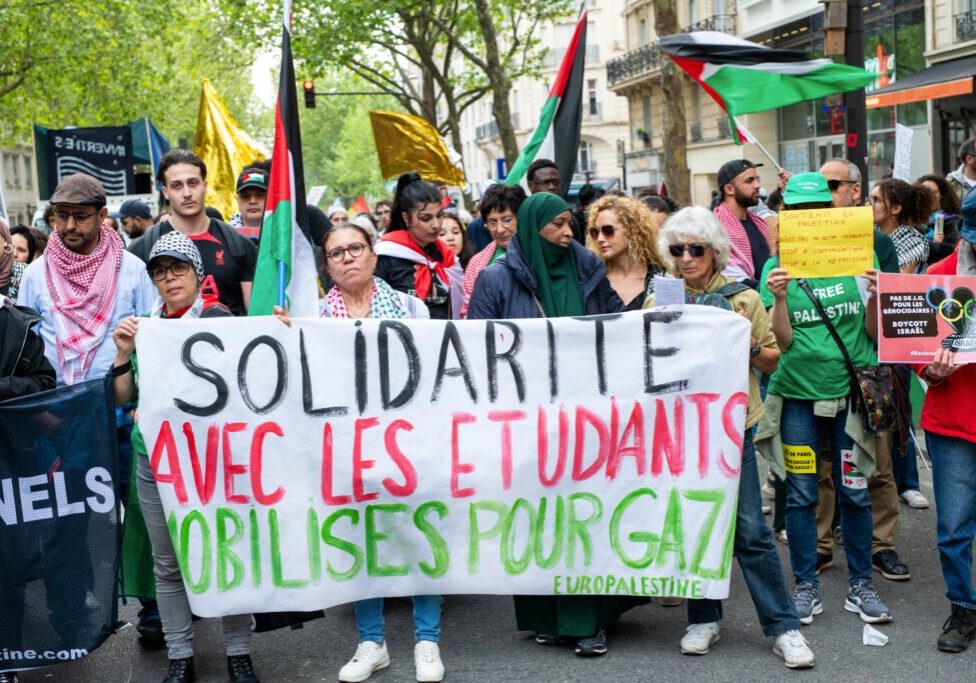Australia/Israel Review
Europe and the Thousand-Headed Monster
Aug 29, 2017 | Eyal Zisser

Eyal Zisser
Barcelona is not just any other city in Europe. It’s not London, Paris or Berlin, where ISIS terrorists have already carried out mass attacks claiming the lives of dozens of innocent civilians. Barcelona is part of Spain, which holds special status in the eyes of the Islamic State group.
Three years ago, when the terrorist organisation was at the height of its power and controlled wide swathes of Syria and Iraq, it issued a map of the future world the way it envisioned it. Large portions of Africa, Asia and even Europe were included in Islamic State’s desired caliphate. Spain, or Andalus in Arabic, was also included.
After all, the Arabs ruled over Spain for nearly 700 years (from the 8th to the 15th century), which explains the Muslim extremists’ demand to reconquer that territory. Much like the land of Israel and other parts of the world formerly under the rule of Islam, it is imperative for Islamic extremists to restore Spain to Islamic hands. Incidentally, it is curious that some people are still surprised that these Muslim fanatics truly believe in these ideologies and ideas from over 1,000 years ago, and that they are willing to fight and kill in order to uphold them.
Spain physically connects Europe and North Africa, making it an ideal thoroughfare for immigrants traveling between the two continents. The Spaniards also control two historical strongholds in Africa itself, the cities of Ceuta and Melilla, situated on the North African coast. These cities have served as a gateway for the multitude of migrants trying to enter Spain illegally, until the Spaniards erected a wall, what some would call a separation fence, to stem the influx of migrants. It goes without saying that Spain was among the loudest to condemn Israel’s security wall, built to curb Palestinian terrorism during the Second Intifada.
Some 30 years ago, about 200,000 Muslims lived in Spain. Today the number is well over a million, and it will soon reach two million. These Muslim immigrants live on the fringes of Spanish society and struggle to integrate. The younger generation’s crisis of identity breeds frustration and has pushed many toward Islamist radicalism. Across Europe, this exact process has taken place in other Muslim communities, resulting in ISIS supporters and terrorists who take up arms.
In Syria and Iraq the organisation is in retreat, and soon the “state” it sought to create around the cities of Mosul and Raqqa will be destroyed. But that hasn’t stopped the masses of ISIS fans from continuing to kill in its name. Indeed, suicide attacks such as the one we saw in Barcelona do not require meticulous planning, large budgets or organisational capabilities. All it takes is a handful of terrorists who wake up in the morning and decide to carry out an attack.
Eradicating Islamic State’s organisational ability to incite, direct or logistically assist these assaults will make it harder to perpetrate sophisticated attacks, but combating small groups of lone terrorists will still require time and patience. Generally speaking, the more blows ISIS sustains, the more reason it has to carry out as many attacks as possible, both as revenge and to prove its ideology remains strong despite the group’s physical state of ruin.
Europe must grit its teeth and continue fighting even harder against terror and the extremism nourishing it. At the same time, however, it has to find a way to deal with the economic and social despair among the immigrant populations flooding its cities.
Prof. Eyal Zisser is the Vice Rector of Tel Aviv University and the holder of the Yona and Dina Ettinger Chair in Contemporary History of the Middle East. © Israel Hayom, reprinted by permission, all rights reserved.
Tags: Europe






